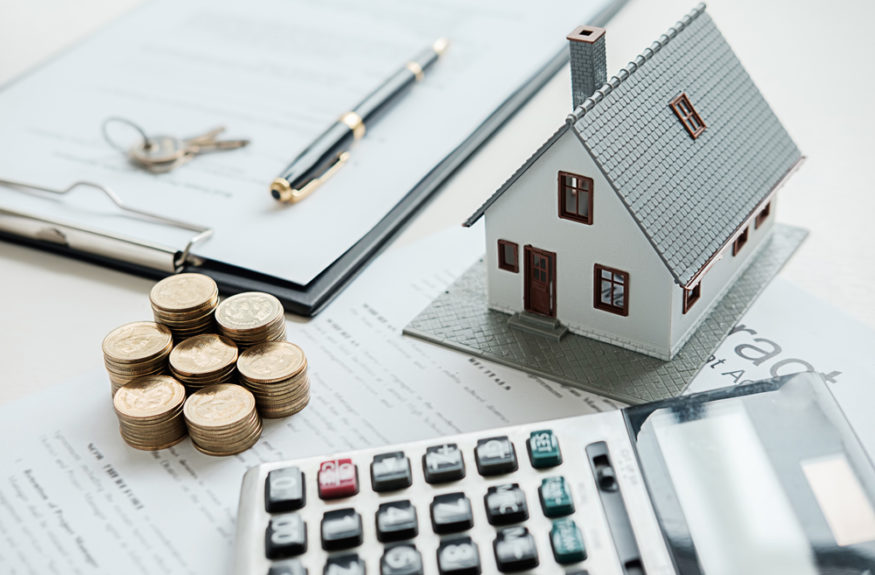Buying a house is a significant financial goal for many people, but what happens if you have filed for bankruptcy in the past?
Bankruptcy is a legal process that helps individuals or businesses eliminate or repay their debts when they are unable to meet their financial obligations.
It can have a long-term impact on your credit and financial situation, but does that mean you can’t buy a house after bankruptcy?
In this article, we will explore the possibilities and challenges of purchasing a house after bankruptcy, specifically focusing on Louisville, KY.
Impact of Bankruptcy on Buying a House
One of the significant impacts of bankruptcy is on the credit score, which is a crucial factor in determining mortgage approval. A low credit score can make it challenging to qualify for a mortgage, and even if you do, you may end up paying higher interest rates or require a larger down payment. Bankruptcy can remain on your credit report for several years, affecting your credit score and making it harder to obtain a mortgage.
Rebuilding Credit After Bankruptcy
Rebuilding credit after bankruptcy is a crucial step towards buying a house. Although bankruptcy can stay on your credit report for up to 10 years, its impact on your credit score can lessen over time. There are several strategies you can implement to improve your credit score after bankruptcy.
First, make sure to pay all your bills on time and in full. Late payments can further damage your credit score. Second, consider obtaining a secured credit card or a credit-builder loan to demonstrate responsible credit usage. Additionally, review your credit report regularly to check for errors or discrepancies and dispute them if necessary.
Home Buying Options After Bankruptcy
Despite the challenges, it is possible to buy a house after bankruptcy. One option is an FHA loan, which is a type of government-backed mortgage that allows borrowers with lower credit scores or a history of bankruptcy to qualify for a mortgage with a lower down payment requirement.
Another option is VA loans, which are available to eligible veterans and active-duty military personnel and often have more lenient credit score requirements. Other loan programs such as USDA loans and conventional loans may also be available depending on your financial situation.
Finding the Right Lender
When buying a house after bankruptcy, it is essential to find the right lender who can understand your unique financial situation and provide you with suitable options. Researching lenders in Louisville, KY, is crucial to ensure that they have experience working with borrowers who have a history of bankruptcy.
Look for lenders who specialize in helping borrowers with credit challenges, offer programs tailored for post-bankruptcy homebuyers, and have positive reviews and testimonials from previous clients. It’s important to work with a lender who can guide you through the process and provide expert advice on the best loan options available to you.
Tips for Buying a House After Bankruptcy
Buying a house after bankruptcy requires careful financial planning and budgeting. Here are some tips to help you navigate the process:
- Create a realistic budget: Evaluate your current financial situation and create a budget that includes your monthly expenses, savings goals, and potential mortgage payments. Make sure to stick to your budget and avoid taking on additional debt.
- Save for a down payment: Saving for a down payment is crucial after bankruptcy as it can help you qualify for a mortgage and reduce your monthly payments. Look for ways to cut expenses and increase your savings, such as reducing discretionary spending and finding ways to earn extra income.
- Improve your credit score: As mentioned earlier, rebuilding your credit is crucial after bankruptcy. Make sure to continue making all your payments on time, pay off any remaining debts, and avoid applying for new credit unless necessary. Over time, your credit score will improve, making you more eligible for favourable loan terms.
- Negotiate with lenders: Don’t be afraid to negotiate with lenders, especially if you have a solid down payment and a stable income. Some lenders may be willing to offer more favourable terms or lower interest rates based on your individual financial situation.
- Be realistic about your options: Understand that buying a house after bankruptcy may come with some limitations. You may need to compromise on certain features or locations of the house or consider alternative housing options such as fixer-uppers or smaller homes. It’s essential to be realistic about what you can afford and what fits within your budget.
Conclusion
In conclusion, while bankruptcy can have a significant impact on your credit and financial situation, it is possible to buy a house after bankruptcy with careful planning and financial management. Rebuilding your credit, exploring loan programs tailored for post-bankruptcy homebuyers, finding the right lender, and budgeting wisely are key steps to achieving your homeownership goal. Remember to be realistic about your options and seek professional advice from experienced lenders. With determination, patience, and smart financial decisions, you can overcome the challenges of buying a house after bankruptcy and achieve your dream of homeownership.


